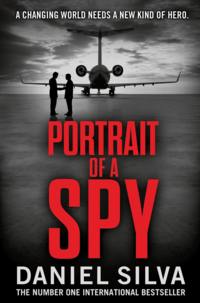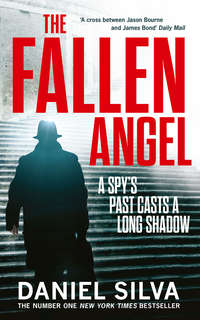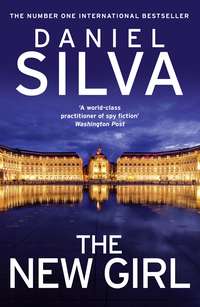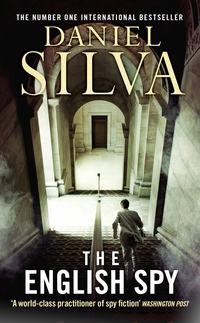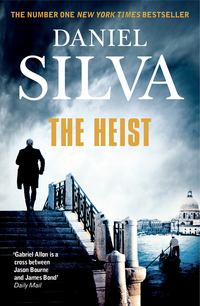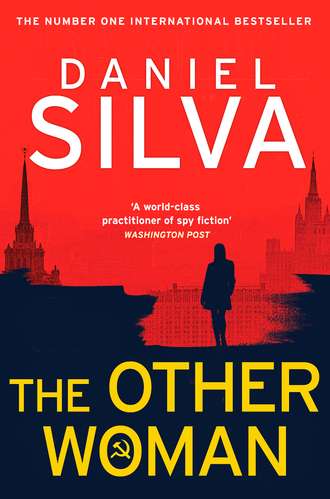
Полная версия
The Other Woman
“It wasn’t one of your better ones. Perhaps this will help.” She poured a large glass of Albariño. “Graham’s waiting for you upstairs. He says you two have something to discuss before dinner. I suppose it has to do with Vienna. I’m not allowed to know.”
“Consider yourself fortunate.”
Gabriel climbed the wide staircase to the second floor. Light spilled from the open doorway of the stately book-lined study where Graham Seymour, the successor of Cumming, Menzies, White, and Oldfield, waited in splendid isolation. He wore a gray chalk-stripe suit and pewter necktie that matched the color of his plentiful locks. His right hand cradled a cut-glass tumbler filled with a clear distilled beverage. His eyes were fixed on the television screen, where his prime minister was responding to a reporter’s question about Brexit. For his part, Gabriel was glad for the change of subject.
“Please tell Lancaster how much his unwavering support meant to me in the days after Vienna. Let him know he can call anytime he needs a favor.”
“Don’t blame Lancaster,” replied Seymour. “It wasn’t his idea.”
“Whose was it?”
“Mine.”
“Why not keep your mouth shut? Why hang me out to dry?”
“Because you and your team ran a bad operation, and I didn’t want it to rub off on my service or prime minister.” Seymour glanced disapprovingly at Gabriel’s wine and then wandered over to the trolley and refreshed his drink. “Can I interest you in something a bit stronger?”
“An acetone on the rocks, please.”
“Olives or a twist?” With a careful smile, Seymour declared a temporary cessation of hostilities. “You should have let me know you were coming. You’re lucky you didn’t miss me. I’m flying to Washington in the morning.”
“The cherry blossoms aren’t in bloom for at least another three months.”
“Thank God.”
“What’s on the agenda?”
“A routine meeting at Langley to review current joint operations and set future priorities.”
“My invitation must have been lost in the mail.”
“There are some things we do without your knowledge. We’re family, after all.”
“Distant family,” said Gabriel.
“And getting more distant by the day.”
“The alliance has been under strain before.”
“Strain, yes, but this is different. We are facing the very real prospect of the collapse of the international order. The same order, I might add, that gave birth to your country.”
“We can look after ourselves.”
“Can you really?” asked Seymour seriously. “For how long? Against how many enemies at once?”
“Let’s talk about something pleasant.” Gabriel paused, then added, “Like Vienna.”
“It was a simple operation,” said Seymour after a moment. “Bring the agent in from the cold, have a word with him in private, put him on a plane to a new life. We do it all the time.”
“So do we,” replied Gabriel. “But this operation was made more complicated by the fact my agent was blown long before he left Moscow.”
“Our agent,” said Seymour pointedly. “We were the ones who agreed to take him in.”
“Which is why,” said Gabriel, “he’s now dead.”
Seymour was squeezing the tumbler so tightly his fingertips had gone white.
“Careful, Graham. You’re liable to break that.”
He placed the glass on the trolley. “Let us stipulate,” he said calmly, “that the available evidence suggests Kirov was blown.”
“Yes, let’s.”
“But let us also stipulate it was your responsibility to bring him in, regardless of the circumstances. You should have spotted the SVR surveillance teams in Vienna and waved him off.”
“We couldn’t spot them, Graham, because there weren’t any. They weren’t necessary. They knew where Kirov was going and that I would be waiting there. That’s how they got the photograph of me leaving the building. That’s how they used their bots, trolls, message boards, and news services to create the impression we were the ones behind Kirov’s killing.”
“Where was the leak?”
“It didn’t come from our service. Which means,” said Gabriel, “it came from yours.”
“I’ve got a Russian spy on my payroll?” asked Seymour. “Is that what you’re saying?”
Gabriel went to the window and gazed at the darkened houses on the opposite side of the square. “Any chance you could put a Harry James record on the gramophone and turn the volume up very loud?”
“I’ve got a better idea,” said Seymour, rising. “Come with me.”
13
EATON SQUARE, LONDON
The door, while outwardly normal in appearance, was mounted within an invisible high-strength steel frame. Graham Seymour opened it by entering the correct eight numerical digits into the keypad on the wall. The chamber beyond was small and cramped, and raised several inches from the floor. There were two chairs, a telephone, and a screen for secure videoconferences.
“An in-home safe-speech room,” said Gabriel. “What will they think of next?”
Seymour lowered himself into one of the chairs and gestured Gabriel into the second. Their knees were touching, like passengers sharing a compartment on a train. The overhead lighting played havoc with Seymour’s handsome features. He looked suddenly like a man Gabriel had never met.
“It’s all rather convenient, isn’t it? And entirely predictable.”
“What’s that?” asked Gabriel.
“You’re looking for a scapegoat to explain your failure.”
“I’d be careful about tossing around the word scapegoat. It makes people like me uneasy.”
Somehow, Seymour managed to maintain a mask of British reserve. “Don’t you dare play that card with me. We go back too far for that.”
“We do indeed. Which is why I thought you might be interested to know that your Head of Station in Vienna is a Russian spy.”
“Alistair Hughes? He’s a fine officer.”
“I’m sure his controllers at Moscow Center feel the same way.” The chamber’s ventilation system roared like an open freezer. “Will you at least give me a hearing?”
“No.”
“In that case, I have no choice but to suspend our relationship.”
Seymour only smiled. “You’re not much of a poker player, are you?”
“I’ve never had much time for trivial pursuits.”
“There’s that card again.”
“Our relationship is like a marriage, Graham. It’s based on trust.”
“In my opinion, most marriages are based either on money or the fear of being alone. And if you divorce me, you won’t have a friend in the world.”
“I can’t operate with you or share intelligence if your Vienna Head is on the Russian payroll. And I’m quite sure the Americans will feel the same way.”
“You wouldn’t dare.”
“Watch me. In fact, I think I’ll tell my good friend Morris Payne about all this in time for your little meeting tomorrow.” Payne was the director of the CIA. “That should liven things up considerably.”
Seymour made no response.
Gabriel glanced at the camera lens above the video screen. “That thing isn’t on, is it?”
Seymour shook his head.
“And no one knows we’re in here?”
“No one but Helen. She adores him, by the way.”
“Who?”
“Alistair Hughes. She thinks he’s dishy.”
“So did the wife of an American diplomat who used to work in Vienna.”
Seymour’s eyes narrowed. “How do you know about that?”
“A little bird told me. The same little bird that told me about Alistair Hughes demanding to know the address of the safe flat where I was planning to debrief Kirov.”
“London Control wanted the address, not Alistair.”
“Why?”
“Because it was our responsibility to get Kirov out of Vienna and onto a plane safely. It’s not like ordering a car from Uber. You can’t press a button at the last minute. We had to plan the primary route and put in place a backup in case the Russians intervened. And for that, we needed the address.”
“How many people knew it?”
“In London?” Seymour glanced at the ceiling. “Eight or nine. And another six or seven in Vienna.”
“What about the Vienna Boys’ Choir?” Greeted by silence, Gabriel asked, “How much did the Americans know?”
“Our Head of Station in Washington informed them that Heathcliff was coming out and that we had agreed to grant him defector status. She didn’t tell them any of the operational details.”
“Not the location?”
“City only.”
“Did they know I would be there?”
“They might have.” Seymour made a show of thought. “I’m sorry, but I’m getting a bit confused. Are you accusing the Americans of leaking the information to the Russians, or us?”
“I’m accusing dishy Alistair Hughes.”
“What about the fourteen other MI6 officers who knew the address of your safe flat? How do you know it wasn’t one of them?”
“Because we’re sitting in this room. You brought me here,” said Gabriel, “because you’re afraid I might be right.”
14
EATON SQUARE, LONDON
Graham Seymour sat for a long moment in a contemplative silence, his gaze averted, as though watching the countryside marching past the window of Gabriel’s imaginary train carriage. At last, he quietly spoke a name, a Russian name, that Gabriel struggled to make out over the howling of the ventilation system.
“Gribkov,” Seymour repeated. “Vladimir Vladimirovich Gribkov. We called him VeeVee for short. He masqueraded as a press attaché at the Russian diplomatic mission in New York. Rather badly, I might add. In reality, he was an SVR officer who trolled for spies at the United Nations. Moscow Center has a massive rezidentura in New York. Our station is much smaller, and yours is smaller still. One man, actually. We know his identity, as do the Americans.”
But that, added Seymour, was neither here nor there. What mattered was that Vladimir Vladimirovich Gribkov, during an otherwise tedious diplomatic cocktail party at a posh Manhattan hotel, approached MI6’s man in New York and intimated he wished to discuss something of a highly sensitive nature. The MI6 officer, whom Seymour did not identify, duly reported the contact to London Control. “Because, as any MI6 field officer knows, the surest route to the career ash heap is to conduct an unauthorized heart-to-heart with an SVR hood.” London Control formally blessed the encounter, and three weeks after the initial contact—enough time, said Seymour, to allow Gribkov to come to his senses—the two officers agreed to meet at a remote location east of New York, on Long Island.
“Actually, it was on a smaller island off the coast, a place called Shelter Island. There’s no bridge, only car ferries. Much of the island is a nature preserve, with miles of walking trails where it’s possible to never bump into another living soul. In short, it was the perfect place for an officer of Her Majesty’s Secret Intelligence Service to meet with a Russian who was thinking about betraying his country.”
Gribkov wasted little time on preliminaries or professional niceties. He said he had become disillusioned with the SVR and with Russia under the rule of the Tsar. It was his wish to defect to England along with his wife and two children, who were living with him in New York at the Russian diplomatic compound in the Bronx. He said he could provide MI6 with a treasure trove of intelligence, including one piece of information that would make him the most valuable defector in history. Therefore, he wanted to be well compensated in return.
“How much?” asked Gabriel.
“Ten million pounds in cash and a house in the English countryside.”
“One of those,” said Gabriel contemptuously.
“Yes,” agreed Seymour.
“And the piece of information that made him worthy of such riches?”
“The name of a Russian mole working at the pinnacle of the Anglo-American intelligence establishment.”
“Did he specify which service or which side of the divide?”
Seymour shook his head.
“What was your reaction?”
“Caution bordering on skepticism, which is our default opening position. We assumed he was telling us a tall tale, or that he was an agent provocateur sent by Moscow Center to mislead us into carrying out a self-destructive witch hunt for a traitor in our midst.”
“So you told him you weren’t interested?”
“The opposite, actually. We told him we were very interested but that we needed a few weeks to make the necessary arrangements. In the meantime, we checked his references. Gribkov was no probationer. He was a veteran SVR officer who’d served in several rezidenturas in the West, most recently in Vienna, where he’d had numerous contacts with my Head of Station.”
“Dishy Alistair Hughes.”
Seymour said nothing.
“What was the nature of the contacts?”
“The usual,” said Seymour. “What’s important is that Alistair reported each and every one of them, as he’s required to do. They were all logged in his file, with cross-references in Gribkov’s.”
“So you brought Hughes to Vauxhall Cross to get his impressions of Gribkov and what he was selling.”
“Exactly.”
“And?”
“Alistair was even more skeptical than London Control.”
“Was he really? I’m shocked to hear that.”
Seymour frowned. “By this point,” he said, “six weeks had passed since Gribkov’s initial offer of defection, and he was starting to get nervous. He made two highly inadvisable phone calls to my man in New York. And then he did something truly reckless.”
“What’s that?”
“He reached out to the Americans. As you might expect, Langley was furious at the way we’d handled the case. They put pressure on us to take Gribkov as quickly as possible. They even offered to pay a portion of the ten million. When we resisted, it turned into a full-blown family feud.”
“Who won?”
“Moscow Center,” said Seymour. “While we were bickering with our American cousins, we failed to notice when Gribkov was ordered home for urgent consultations. His wife and children returned to Russia a few days later, and the following month the Permanent Mission of the Russian Federation to the United Nations announced the appointment of a new press attaché. Needless to say, Vladimir Vladimirovich Gribkov has never been seen or heard from since.”
“Why wasn’t I told about any of this?”
“It didn’t concern you.”
“It concerned me,” said Gabriel evenly, “the minute you let Alistair Hughes within a mile of my operation in Vienna.”
“It didn’t cross our mind not to let him work on the operation.”
“Why not?”
“Because our internal inquiry cleared him of any role in Gribkov’s demise.”
“I’m relieved to hear that. But how exactly did the Russians learn Gribkov was trying to defect?”
“We concluded he must have tipped them off with his behavior. The Americans agreed with our assessment.”
“Thus ending a potentially destabilizing fight among friends. But now you have another dead Russian defector on your hands. And the one common denominator is your Head of Station in Vienna, a man who carried on an extramarital affair with the wife of an American consular officer.”
“Her husband wasn’t a consular officer, he was Agency. And if marital infidelity were an accurate indicator of treason, we wouldn’t have a service. Neither would you.”
“He’s been spending a lot of time across the border in Switzerland.”
“Did your little bird tell you that, too, or have you been watching him?”
“I would never watch one of your officers without telling you, Graham. Friends don’t do that to one another. They don’t keep each other in the dark. Not when lives are at stake.”
Seymour offered no response. He looked suddenly exhausted and weary of the quarrel. Gabriel did not envy his friend’s predicament. A spymaster never won in a situation like this. It was only a question of how badly he lost.
“At the risk of putting my nose somewhere it doesn’t belong,” said Gabriel, “it seems to me you have two choices.”
“Do I?”
“The most logical course of action would be to open an internal investigation into whether Alistair Hughes is flogging your secrets to the Russians. You’ll be obligated to tell the Americans about the inquiry, which will send your relationship into the deep freeze. What’s more, you’ll have to bring your rivals at MI5 into the picture, which is the last thing you want.”
“And the second option?” asked Seymour.
“Let us watch Hughes for you.”
“Surely, you jest.”
“Sometimes. But not now.”
“It’s without precedent.”
“Not entirely,” replied Gabriel. “And it’s not without its advantages.”
“Such as?”
“Hughes knows your surveillance techniques and, perhaps more important, your personnel. If you try to watch him, there’s a good chance he’ll spot you. But if we do it—”
“You’ll have license to rummage into the private affairs of one of my officers.”
With a shrug of his shoulders, Gabriel made it clear that such license was his already, with or without Seymour’s acquiescence. “He won’t be able to hide it from us, Graham, not if he’s under round-the-clock surveillance. If he’s in contact with the Russians, we’ll see it.”
“And then what?”
“We’ll hand the evidence over to you, and you can do with it as you see fit.”
“Or as you see fit.”
Gabriel did not rise to the bait; the contest was nearly over. Seymour lifted his eyes irritably toward the grate in the ceiling. The air was Siberian cold.
“I can’t let you watch my Vienna Head without someone from our side looking over your shoulder,” he said at last. “I want one of my officers on the surveillance team.”
“That’s how we got into this mess in the first place, Graham.” Greeted by silence, Gabriel said, “Given the current circumstances, there’s only one MI6 officer I’d accept.”
“Have you forgotten that he and Alistair know each other?”
“No,” replied Gabriel, “that important fact has not suddenly slipped my mind. But don’t worry, we won’t let them within a mile of each other.”
“Not a word to the Americans,” demanded Seymour.
Gabriel raised his right hand, as though swearing a solemn oath.
“And no access whatsoever to any MI6 files or the inner workings of Vienna station,” Seymour insisted. “Your operation will be limited to physical surveillance only.”
“But his apartment is fair game,” countered Gabriel. “Eyes and ears.”
Seymour made a show of deliberation. “Agreed,” he said finally. “But do try to show a little discretion with your cameras and microphones. A man is entitled to a zone of immunity.”
“Unless he’s spying for the Russians. Then he’s entitled to vysshaya mera.”
“Is that Hebrew?”
“Russian, actually.”
“What does it mean?”
Gabriel punched the eight-digit numerical code into the internal keypad, and the locks opened with a snap.
Seymour frowned. “I’ll have that changed first thing in the morning.”
“Do,” said Gabriel.
Seymour was distracted during dinner, and so it fell to Helen, the perfect service wife, to guide the conversation. She did so with admirable discretion. Gabriel was no stranger to the London press, yet never once did she raise the unpleasant topic of his past exploits on British soil. Only later, as he was preparing to take his leave, did he realize they had spoken of nothing at all.
He had hoped to walk back to his hotel, but a Jaguar limousine waited curbside. Christopher Keller was sitting in the backseat, reading something on his MI6 BlackBerry. “I’d get in if I were you,” he said. “A good friend of the Tsar lives on the other side of the square.”
Gabriel ducked into the car and closed the door. The limousine moved away from the curb with a lurch and a moment later was speeding along the King’s Road through Chelsea.
“How was dinner?” asked Keller warily.
“Almost as bad as Vienna.”
“I hear we’re going back.”
“Not me.”
“Too bad.” Keller stared out the window. “I know how much you love the place.”
15
BRITISH EMBASSY, WASHINGTON
The director-general of Her Majesty’s Secret Intelligence Service had no private aircraft of his own—only the prime minister had such a perquisite—and so Graham Seymour crossed the Atlantic the next morning aboard a chartered Falcon executive jet. He was met on the tarmac at Dulles International Airport by a CIA reception team and driven at high speed through the sprawl of suburban Northern Virginia, to the British Embassy compound on Massachusetts Avenue. Upon arrival, he was shown upstairs for the obligatory meeting with the ambassador, a man he had known nearly all his life. Their fathers had served together in Beirut in the early 1960s. The ambassador’s father had worked for the Foreign Office, Seymour’s for MI6.
“Dinner tonight?” asked the ambassador as he showed Seymour to the door.
“Back to London, I’m afraid.”
“Pity.”
“Quite.”
Seymour’s next stop was the MI6 station, which lay behind a bank vault of a door, a secret kingdom, separate and apart from the rest of the embassy. It was MI6’s largest station by far, and without question its most important. By standing agreement, its officers made no attempt to collect intelligence on American soil. They served merely as liaisons to the sprawling U.S. intelligence community, where they were regarded as valued customers. MI6 had helped to build America’s espionage capability during World War II, and now, decades later, it was still reaping the rewards. The close familial relationship allowed the United Kingdom, a hollowed-out former imperial power with a small military, to play an outsize role on the world stage, and thus maintain the illusion it was a global power to be reckoned with.
Rebecca Manning, the Washington Head of Station, was waiting for Seymour on the other side of the security barrier. She had been beautiful once—far too beautiful to be an intelligence officer, in the opinion of one long-forgotten service recruiter—but now, in the prime of her professional life, she was merely formidably attractive. A stray lock of dark hair fell over a cobalt-blue eye. She moved it aside with one hand and extended the other toward Seymour. “Welcome to Washington,” she intoned, as though the city and all it represented were hers exclusively. “I trust the flight wasn’t too terrible.”
“It gave me a chance to read your briefing materials.”
“There are one or two more points I’d like to review before we leave for Langley. There’s coffee in the conference room.”
She released her grip on Seymour’s hand and led him along the station’s central corridor. Her stylish jacket and skirt smelled faintly of tobacco; she had no doubt stepped into the garden for a quick L&B before Seymour’s arrival. Rebecca Manning was an unrepentant and wholly unapologetic smoker. She had acquired the habit at Cambridge, and it had worsened considerably during a posting in Baghdad. She had also served in Brussels, Paris, Cairo, Riyadh, and Amman, where she had been the Head of Station. It was Seymour, early in his tenure as chief, who had given her the job as H/Washington, as it was known in the lexicon of the service. In doing so, he had virtually anointed her as his successor. Washington would be Rebecca’s final overseas station; there was nowhere else for her to go. Nowhere but a final lap at Vauxhall Cross so that she might be formally introduced to the barons of Whitehall. Her appointment would be historic, and long overdue. MI5 had already had two female chiefs—including Amanda Wallace, the current director-general—but Six had never entrusted the reins of power to a woman. It was a legacy Seymour would be proud to leave.
Family ties aside, Washington Station observed the same security procedures as any other post in the world, especially when it came to sensitive conversations between senior officers. The conference room was impervious to electronic eavesdropping. A leather-bound briefing book had been left at Seymour’s place at the table. Inside was the agenda for the meeting with CIA director Morris Payne, along with summaries of current policies, future goals, and ongoing operations. It was one of the most valuable documents in the world of global intelligence. Moscow Center would surely have killed for it.



